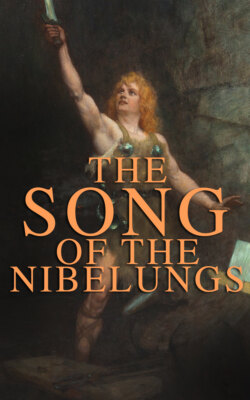Читать книгу The Song of the Nibelungs - Anonymous - Страница 15
На сайте Литреса книга снята с продажи.
5. Poem and Saga in Modern Literature
ОглавлениеFundamentally different from the foregoing natural outgrowths of the Nibelungen saga are the modern dramas and poems founded upon it since the time of the romanticists at the beginning of the nineteenth century.7 Nearly all of these have already vanished as so much chaff from the winnowing-mill of time: only two, perhaps, are now considered seriously, namely, Hebbel's Die Nibelungen and Richard Wagner's Ring des Nibelungen. Hebbel in his grandly conceived drama in three parts follows closely the story as we have it in our epic poem the Nibelungenlied, and the skill with which he makes use of its tragic elements shows his dramatic genius at its best. But not even the genius of Hebbel could make these forms of myth and saga live again for us upon a modern stage, and the failure of this work with its wealth of poetic beauty and many scenes of highest dramatic effectiveness to maintain its place as an acting drama is sufficient evidence that the yawning gap that separates the sentiment of the modern world from that of the early centuries in which these sagas grew is not to be bridged over by the drama, however easy and indeed delightful it may be for us to allow ourselves to be transported thither to that romantic land upon the wings of epic story. Wagner in his music-drama in three parts and prelude has followed in the main the saga in its Northern form 8 up to the death of Siegfried and Brunhild, but to the entire exclusion of the latter part of the story in which Atli (Etzel) figures; his work has accordingly hardly any connection with the Nibelungenlied here offered in translation. Only the pious loyalty of national sentiment can assign a high place in dramatic literature to Wagner's work with its intended imitation of the alliterative form of verse; while his philosophizing gods and goddesses are also but decadent modern representatives of their rugged heathen originals.
